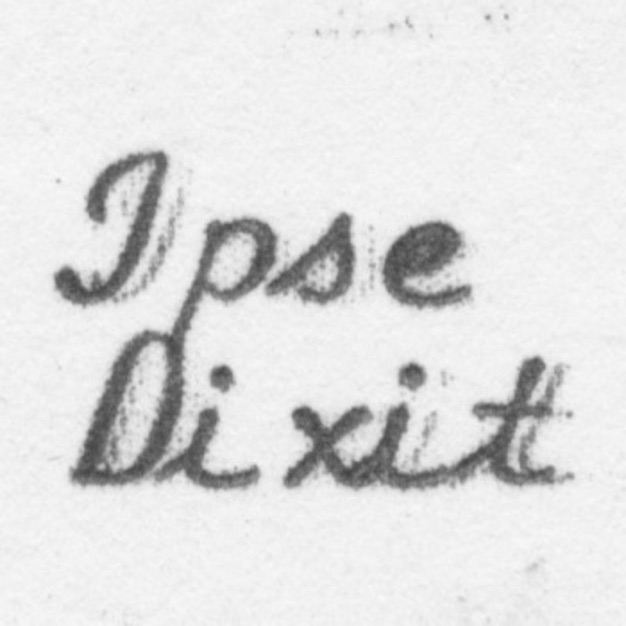
Ipse Dixit
Brian L. Frye
Ipse Dixit is a podcast on legal scholarship. Each episode of Ipse Dixit features a different guest discussing their scholarship. The podcast also features several special series.
- 41 minutes 53 secondsSamantha Alecozay on the Corporate Transparency Act
In this episode, Samantha Alecozay, a practicing faculty member at St. Mary’s University School of law, and the founding attorney of Alecozay Law Firm, PLLC, discusses her forthcoming article, “The Small Business Killer: How FinCEN Enforcement of the CTA Could Destroy the Last Bastion of the American Dream,” which will be published by the Lincoln Memorial University Law Review. In the meantime, it’s available to download on SSRN.
Alecozay describes the Corporate Transparency Act, which came into effect on January 1, 2024. The CTA is meant to create a national database of owner information for certain business entities with the goal of combating money laundering. But, as Alecozay details, the law both fails to target the most likely culprits and applies to a vast array of innocent businessowners. Failure to provide the detailed information requested may result in civil penalties of nearly $600 per day, and only a small portion of the millions of businesses affected are aware of the law’s requirement. Alecozay addresses the challenges of enforcing such a broadly applicable statute, as well as the potential for significant damages and disruption to businessowners caught unawares by the CTA’s requirements.
This episode was hosted by Michael L. Smith, Assistant Professor of Law at St. Mary’s University School of Law. Smith is on Twitter (or “X”) at @msmith750, and is on BlueSky at @[email protected].
Hosted on Acast. See acast.com/privacy for more information.
10 November 2024, 9:59 pm - 1 hour 4 minutesRohan Grey on Spending & Inflation
In this episode, Rohan L. Grey, Assistant Professor of Law at Willamette University College of Law, discusses his new article "Public Spending, Price Stability, and the Green Transition: A Reassessment," which is published in the George Washington Journal of Energy and Environmental Law. Grey begins by explaining why inflation is a policy problem and how we have historically tried to manage it. He identifies some weaknesses of the traditional methods of managing inflation and describes some alternative approaches that could be more efficient and effective. He then explains one potential way of applying those methods to the environmental crisis by nationalizing oil and gas companies. Grey is on Twitter at @rohangrey.
This episode was hosted by Brian L. Frye, Spears-Gilbert Professor of Law at the University of Kentucky College of Law. Frye is on Twitter at @brianlfrye.
Hosted on Acast. See acast.com/privacy for more information.
10 November 2024, 5:39 am - 53 minutes 36 secondsMatt Steilen on Magna Carta and Common Counsel
In this episode, Matthew Steilen, Professor of Law at the University of Buffalo School of Law, discusses his draft article "Magna Carta and the Origins of Legislative Power," which is part of a book project. Steilen begins by explaining the origins and purpose of Magna Carta. He then focuses on Chapter 12 of Magna Carta, which requires "common counsel." He explains why the conventional wisdom about the meaning of Chapter 12 is wrong, and how it was really about requiring spirited debate. He reflects on why that was important and how it informed the development of legislative speech. He also reflects on the historiography of Magna Carta. Steilen is on Twitter at @MJSteilen.
This episode was hosted by Brian L. Frye, Spears-Gilbert Professor of Law at the University of Kentucky College of Law. Frye is on Twitter at @brianlfrye.
Hosted on Acast. See acast.com/privacy for more information.
11 September 2024, 8:22 pm - 55 minutes 23 secondsOliver Traldi on Political Beliefs
In this episode, Oliver Traldi, a John and Daria Barry Postdoctoral Research Fellow at the James Madison Program at Princeton University, discusses his new book "Political Beliefs: A Philosophical Introduction," which is published by Routledge. Here is the description of the book:
Anyone who’s had an argument about politics with a friend may walk away wondering how this friend could possibly hold the beliefs they do. A few self-reflective people might even wonder about their own political beliefs after such an argument. This book is about the reasons that people have, and could have, for political beliefs: the evidence they might draw on, the psychological sources of their views, and the question of how we ought to form our political beliefs if we want to be rational.The book’s twenty-four chapters are divided into four larger parts, which cover the following: (1) the differences between political and other types of beliefs, (2) theories of political belief formation, (3) sources of our political beliefs and how we might evaluate them, and (4) contemporary phenomena – like polarization, fake news, and conspiracy theories – related to political beliefs. Along the way, the book addresses questions that will arise naturally for many readers, like:Does the news you choose to watch and your own social media leave you stuck in an “information bubble”?Are you committed to a certain ideology because of the history of your society?Are people who believe “fake news“ always acting irrationally?Does democracy do a good job of figuring out what’s true?Are some political beliefs good and some evil?As the book investigates these and other questions, it delves into technical, philosophical topics like epistemic normativity, the connection between belief and action, pragmatic encroachment, debunking arguments, and ideology critique. Chapter summaries and discussion questions will help students and all interested readers better grasp this new, important area on the border of politics and philosophy.Traldi is on Twitter at @olivertraldi. The PDF version of his book is available for free on the Routledge website.
This episode was hosted by Elizabeth Schiller, who is the Staff Director for the Virginia Access to Justice Commission.
Hosted on Acast. See acast.com/privacy for more information.
22 May 2024, 5:35 pm - 36 minutes 47 secondsAlison LaCroix on the Interbellum Constitution
In this episode, Alison L. LaCroix, Robert Newton Reid Professor of Law, Associate Member of the Department of History at the University of Chicago Law School, discusses her new book, "The Interbellum Constitution: Union, Commerce, and Slavery in the Age of Federalisms," which is published by Yale University Press. LaCroix explains what made interbellum America unique and what we can learn from interbellum constitutional thought. She describes the unique features of interbellum constitutional ideology and reflects on what it can tell us about constitutional thought today.
This episode was hosted by Brian L. Frye, Spears-Gilbert Professor of Law at the University of Kentucky College of Law. Frye is on Twitter at @brianlfrye.
Hosted on Acast. See acast.com/privacy for more information.
15 May 2024, 11:47 pm - 27 minutes 13 secondsNaomi Sunshine on Reclaiming German Citizenship
In this episode, Naomi Sunshine, a director in the Public Interest Law Center and Supervising Attorney in the Immigrants Right Clinic at NYU Law School, discusses the process of reclaiming German citizenship under Article 116 Paragraph 2 of the Basic Law, which provides for the restoration of German citizenship to former German citizens deprived of their German citizenship due to “political, racial, or religious grounds” in the time period from January 30, 1933 to May 8, 1945, and their descendants. One of the primary purposes of Article 116 was to restore the German citizenship of denaturalized German Jews. Sunshine describes her family story and explains the process of applying for German citizenship under section 116. She also describes the experience of becoming a German citizen. Here is a link to the application for German citizenship under Article 116.
This episode was hosted by Brian L. Frye, Spears-Gilbert Professor of Law at the University of Kentucky College of Law. Frye is on Twitter at @brianlfrye.
Hosted on Acast. See acast.com/privacy for more information.
30 April 2024, 9:08 pm - 32 minutes 7 secondsHenry Oliver on Late Bloomers
In this episode, Henry Oliver, a writer, speaker, and brand consultant based in London, discusses his new book, "Second Act: What Late Bloomers Can Tell You About Reinventing Your Life." Oliver begins by explaining what he means by a "late bloomer" and what their stories can tell us about success. He discusses many historical examples of late bloomers, describing their similarities and differences. And he shares some strategies about achieving success later in life that we can glean from their examples. Oliver is on Twitter at @HenryEOliver. You can also subscribe to his Substanck The Common Reader.
This episode was hosted by Brian L. Frye, Spears-Gilbert Professor of Law at the University of Kentucky College of Law. Frye is on Twitter at @brianlfrye.
Hosted on Acast. See acast.com/privacy for more information.
16 April 2024, 8:20 pm - 38 minutes 28 secondsPhillips & Baumann on the Major Questions Doctrine & the SEC
In this episode, Todd Phillips, Assistant Professor at the Georgia State University J. Mack Robinson College of Business, and Beau J. Baumann, a Ph.D. student at Yale Law School, discuss their article "The Major Questions Doctrine's Domain," which will be published in the Brooklyn Law Review. Phillips and Baumann begin by explaining what the major questions doctrine is, how it works, and why it's important. They describe how litigants are challenging SEC enforcement actions against crypto token using MQD-based challenges. And they explain why the MQD shouldn't apply to agency enforcement actions based on judicial interpretations of the scope of agency power, only an agency's own interpretation of its power in the context of legislative rulemaking. Baumann is on Twitter at @beau_baumann and Phillips is on Twitter at @tphillips.
This episode was hosted by Brian L. Frye, Spears-Gilbert Professor of Law at the University of Kentucky College of Law. Frye is on Twitter at @brianlfrye.
Hosted on Acast. See acast.com/privacy for more information.
22 March 2024, 5:21 am - 39 minutes 16 secondsMatt Blaszczyk on Emergent Works & Copyright
In this episode, Matt Blaszczyk, an incoming research fellow at the University of Michigan Law School, discusses his article "Impossibility of Emergent Works’ Protection in U.S. and EU Copyright Law," which is published in the North Carolina Journal of Law & Technology. Blaszczyk begins by explaining the concept of an "emergent work," or work without a human author, a category of works of authorship that includes AI generated works. He describes several efforts to register emergent works for copyright protection and explains on why they have been unsuccessful. And he reflects on what the category of emergent works can tell us about the ontology and theory of copyright. Blaszczyk is on Twitter at @mmblaszczyk.
This episode was hosted by Brian L. Frye, Spears-Gilbert Professor of Law at the University of Kentucky College of Law. Frye is on Twitter at @brianlfrye.
Hosted on Acast. See acast.com/privacy for more information.
22 March 2024, 4:40 am - 21 minutes 28 secondsFrom the Archives 114: Dupont's Cavalcade of America, The Constitution of the United StatesFrom 1935-53, the DuPont Company sponsored a radio program titled "Cavalcade of America." This episode dramatized the United States Constitution. The recording consists of three 78 RPM records, which were collected and digitized by the Internet Archive. Unfortunately, the B-side of the third 78 was too damaged to digitize.
Hosted on Acast. See acast.com/privacy for more information.
8 March 2024, 6:23 am - 35 minutes 50 secondsBeau Baumann on Americana Administrative Law
In this episode, Beau Baumann, a PhD candidate at Yale Law School, discusses his article "Americana Administrative Law," which is published in the Georgetown Law Journal. Baumann describes the origins and history of the non-delegation doctrine and the major questions doctrine, explaining how both are rooted in an ideological fantasy of a Congress that never existed, ultimately in service of judicial self-aggrandizement. He reflect on how that happened, why it's a problem, and how scholars should understand it.
This episode was hosted by Brian L. Frye, Spears-Gilbert Professor of Law at the University of Kentucky College of Law. Frye is on Twitter at @brianlfrye.
Hosted on Acast. See acast.com/privacy for more information.
8 March 2024, 5:05 am - More Episodes? Get the App
Your feedback is valuable to us. Should you encounter any bugs, glitches, lack of functionality or other problems, please email us on [email protected] or join Moon.FM Telegram Group where you can talk directly to the dev team who are happy to answer any queries.
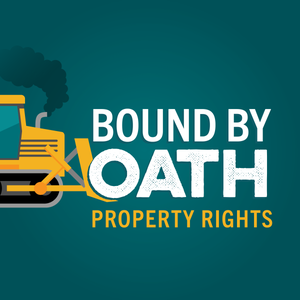 Bound By Oath by IJ
Bound By Oath by IJ
 Reasonably Speaking
Reasonably Speaking
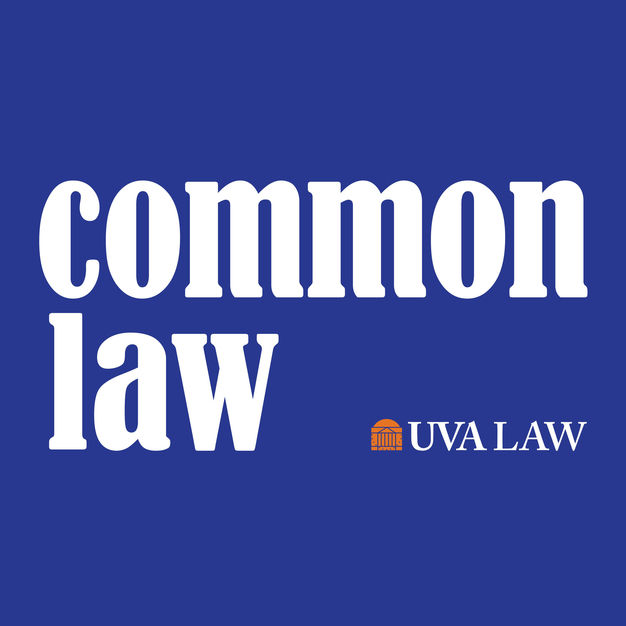 Common Law
Common Law
 SCOTUStalk
SCOTUStalk
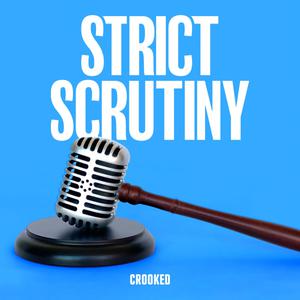 Strict Scrutiny
Strict Scrutiny
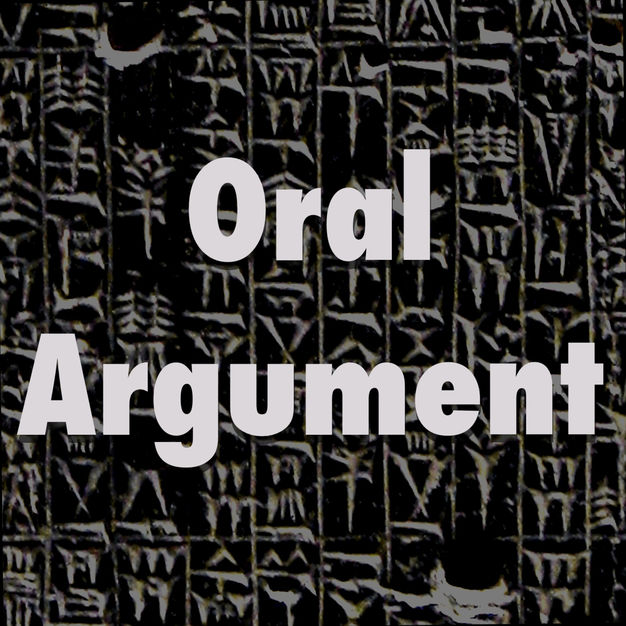 Oral Argument
Oral Argument